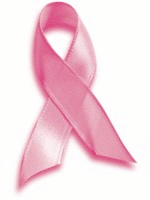Conclusion
After conducting our interviews, our group realized that even though each of our interviewees was aware of cancer and the troubles of dealing with the illness before they actually had their experiences, they all found the process of actually dealing with it more traumatic than they could have ever imagined. Each person interviewed changed their perception of the illness and turned their negative experience into a positive. Maureen Lovett was angry when she lost her sister, but realized that she had to learn from her experience and try and help fight the disease so that other people may not have to go through what she went through. Breast cancer movements were her avenue for further bringing awareness to the issue. Betty Wingo found the silver lining in her dark cloud from the beginning of her ordeal. She focused more on the fact that she was still alive rather than losing her hair and her breast. Within Wingo's interview, the feminist issue of the perception of women's beauty was highlighted as the social norm of beauty was redefined by their ability to use their new appearance to be embraced by the breast cancer community or on a larger scale the world. Feminism lies in the fact that courage and a strong community create an image that represents women as a whole and ignores physical disparities. Leslie Berry’s life was on a downward spiral after losing her job and then being diagnosed with cancer. Berry turned to family, faith, and put her trust in her treatment and she made it through a life changing situation. Each of these women battled cancer and used their experience as a tool for self empowerment and inspiration. Even though their experiences are different, each woman showed extreme perseverance in what could have halted them from enjoying life.
Subscribe to:
Post Comments (Atom)

No comments:
Post a Comment